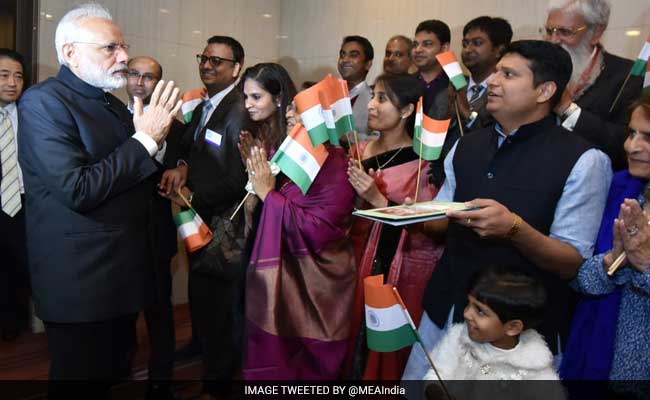
Prime Minister Narendra Modi who is on a three-day visit to Japan, is expected to seal a landmark nuclear energy pact that will materialise after six years of negotiations. The visit - his second to Japan in two years -- comes as China's influence grows in the region.
Here are top 10 updates in this big story:
The nuclear deal - which is subject to ratification by the Japanese parliament -- will allow Japan to supply nuclear reactors, fuel and technology. The two nations reached a broad agreement last December, said foreign ministry spokesman Vikas Swarup.
PM Modi met Japanese Emperor Akihito this morning, ahead of his meeting with counterpart Shinzo Abe. The two Prime Ministers will hold wide-ranging talks.
Prime Minister Modi, who reached Tokyo after a brief stopover in Thai capital Bangkok to pay respects to revered King Bhumibol Adulyadej, who died last month, tweeted, "Looking forward to fruitful deliberations that will boost economic and cultural ties between India and Japan".
India is in advanced negotiations with US-based Westinghouse Electric, owned by Japan's Toshiba, to build six nuclear reactors in the south - a part of New Delhi's plan to ramp up nuclear capacity ten-fold by 2032.
The nuclear deal comes after long negotiations to find a way around Tokyo's reservations about such an agreement with a nation that hasn't signed the Non-Proliferation Treaty.
Japan, the only country to have suffered a nuclear attack, has sought assurances from New Delhi that it would not conduct nuclear tests any more.
The main accord is likely to be accompanied by a separate document stipulating that Tokyo will suspend nuclear cooperation if India conducts a nuclear test, Japan's Yomiuri newspaper reported. Initially, Japan wanted it to part of the agreement, but India resisted, it said.
India has declared a moratorium on nuclear testing since its last explosions in 1998. The nation -- which has concerns about nuclear-armed China as well as its long-time rival Pakistan -- has not signed the Non-Proliferation Treaty, contending that it is discriminatory.
The nuclear deal is seen as a step that will draw the two nations closer in the backdrop of concerns about a reduced US engagement in the South-east Asia following US President-elect Donald Trump's "America First" campaign promise.
India and Japan have also been trying to close a deal on the supply of amphibious rescue aircraft US-2 to the Indian navy, which would be one of Japan's first sales of military equipment since Prime Minister Abe lifted a 50-year ban on arms exports.

